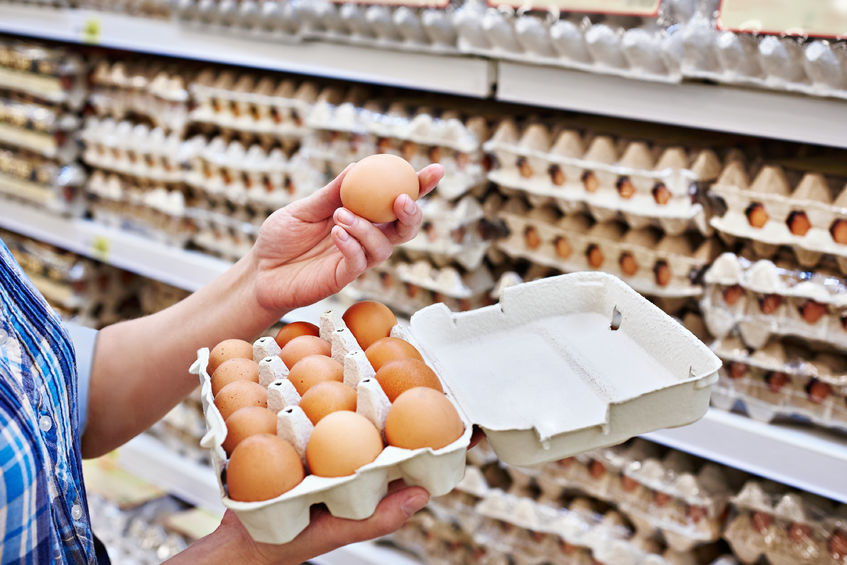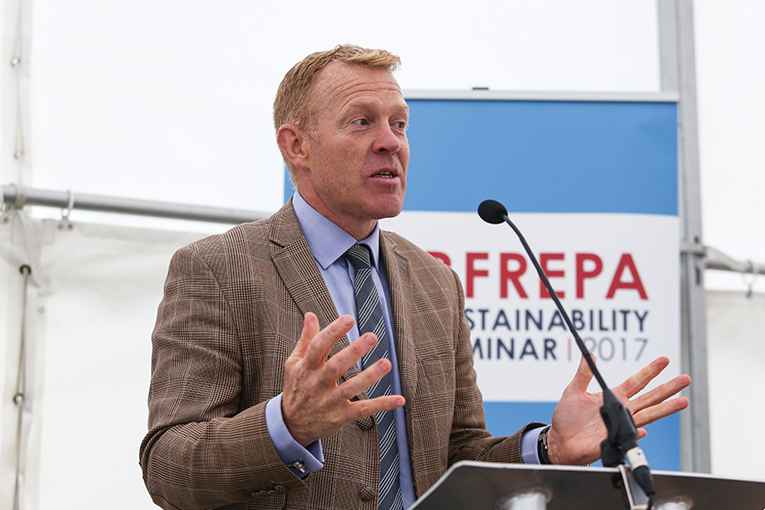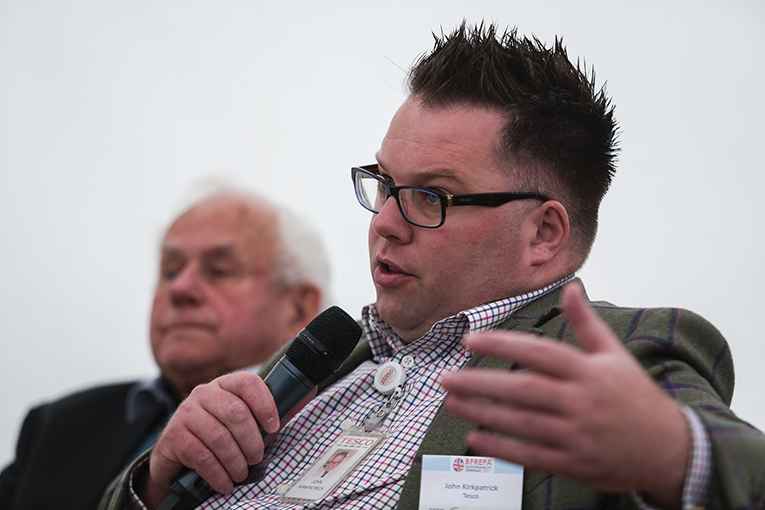Report assesses progress on retailers cage free 2025 promise

A report has been released that has assessed the progress on retailers cage free 2025 promise.
The British Free Range Egg Producers Association (BFREPA) hosted a Sustainability Seminar at the Cotswold farm of BBC Presenter Adam Henson.
The report is available to download online here.
Two projects were discussed with free range egg producers, retailers and other members of the supply chain.
All the country's leading retailers have said that they will stop selling cage eggs by 2025.
Jason Gittins of agricultural consultancy ADAS said they represent about two thirds of current grocery market share.
ADAS was asked to look at the implications for the egg market and Jason Gittins has reported that a third of sales could be barn eggs by the deadline date.
"There is a general view that barn production will be needed to supply retailers’ value line eggs after sales of cage eggs end," he said in his report.
"In these cases, it is estimated that barn may account for around 25 to 35 per cent of sales for those retailers going cage-free by 2025."
But Mr Gittins added: "It is noted, however, that not all retailers are committed to barn at present – some have not yet ruled out selling only free range."

Barn eggs
Currently barn eggs account for only a vey small percentage of sales in the United Kingdom, and latest figures show that production has fallen back still further.
The number of barn eggs packed in UK packing stations in the first three months of 2017 was down by 28 per cent compared with the same period in 2016.
Barn accounted for only one and a half per cent of all eggs passing through the country's packing centres in the first quarter of the year.
Just 110,000 cases of barn eggs went through the packing stations, which account for the vast majority of UK production.
Jason Gittins said that, as part of his research, meetings had been held with four retailers who had committed to being cage-free by 2025.
These were Iceland, ASDA, Tesco and Morrison’s. A fifth retailer, Aldi UK, had provided a response by email.
A review of the stated buying commitments of other retailers and foodservice companies had been undertaken through their web sites.

"To date, these additional companies include Lidl, Booker, Compass, Elior, Sodexo, Pizza Hut and Costa. In certain cases, follow-up telephone conversations have been (or will be) held," he said in his report.
'Further growth in free range'
Mr Gittins said barn production was "largely considered by retailers to be ‘unknown’ for many consumers and there are some concerns over the extent to which it will be accepted."
He said: "Some retailers are already considering what is acceptable for barn production and what is not. There may be reluctance to maximise stocking densities and so setting appropriate standards will be important."
If barn eggs were not accepted by consumers, there could be further growth in free range, said Mr Gittins, who said that the level of price differential between barn and free range could be important in determining sales and preferences.
Retailers had an input into the report confiding directly with ADAS. John Kirkpatrick from Tesco and Jake Pickering from Sainsbury’s attended the event
"It is accepted that barn eggs will be more expensive than cage, e.g. an increase of between seven and 10 pence per dozen at retail level has been suggested.
"This indicates that the price difference between value and free range will decrease, unless free range prices increase such that the differential remains the same," Jason Gittins said.
"Some retailers may continue to stock a tertiary brand cage egg for a while after 2025, if their non-cage commitment is to own-brand only.
"This could be used to assist the transition process, but it is generally not seen as a long-term option."
'Difficult'
"It is accepted that the transition from cage to barn eggs could be a difficult one for retailers in the run-up to 2025," Mr Gittins said.
"Some price-sensitive customers may continue to select cage eggs whilst they remain available, so barn may be in surplus for a while – they may have to be cascaded."
Mr Gittins pointed out that the commitment made by retailers to go cage-free had been for shell egg but not egg products.
"For larger retailers, in particular, the products area is seen as too complex because of the high number of different foods and suppliers.
"On this basis, smaller businesses with fewer product lines may be more able to adopt a non-cage policy on egg products than larger businesses," he said in the report.
He has also looked into the likely cost for producers switching to barn production and at potential problems in obtaining planning consent.
He said the cost of converting an existing shed to barn was likely to be between £10 and £15 per bird. A new build was likely to cost £25 per bird.
Expensive to gain consent
On planning issues, Mr Gittins said planning specialists reported that it was increasingly expensive and time consuming to gain consent in England and more difficult in Wales.
"The planning system in the two countries is now quite different. Furthermore, there is substantial variation in requirements between different parts of England.
"Re-development of existing facilities (e.g. cage to barn) is generally easier in planning terms than a new development," he said.
Jason Gittins' interim report was unveiled at the 2017 BFREPA Sustainability Seminar. The seminar was held on June 29 at the farm of television farmer Adam Henson near Cheltenham.
Keel bone damage
Another speaker at the seminar was Dr Vicky Sandilands of SRUC in Scotland, which has conducted research commissioned by BFREPA - partially funded by the association's sustainability fund.
The SRUC scientist spoke about keel bone damage - something that has aroused debate in the industry again recently following the decision by Freedom Food to insist on the fitting of aerial perches in flat deck layer houses.
Some experts suggest that retro-fitting aerial perches increases the incidence of keel bone damage.
Dr Sandilands explained the issues surrounding keel bone injuries in layers and talked about the research being carried out into the subject.
Andrew Naylor, head of agriculture at Lloyds Bank Commercial Banking said about the event: “We became involved with BFREPA to understand more about how the country’s free range egg farmers, suppliers and retailers are building a sustainable future for the sector, and how we can support the industry in achieving this.
“It was interesting to hear Jason Gittins from ADAS talk about the potential impact on the supply chain as supermarkets move to meet a 2025 deadline to only stock cage-free eggs.
“For instance, if the free-range market share rose by around 10%, 2.7m more free range hens would be required, laying c£1.8m more cases of eggs a year, creating new opportunities for farmers and suppliers to meet this demand.”








